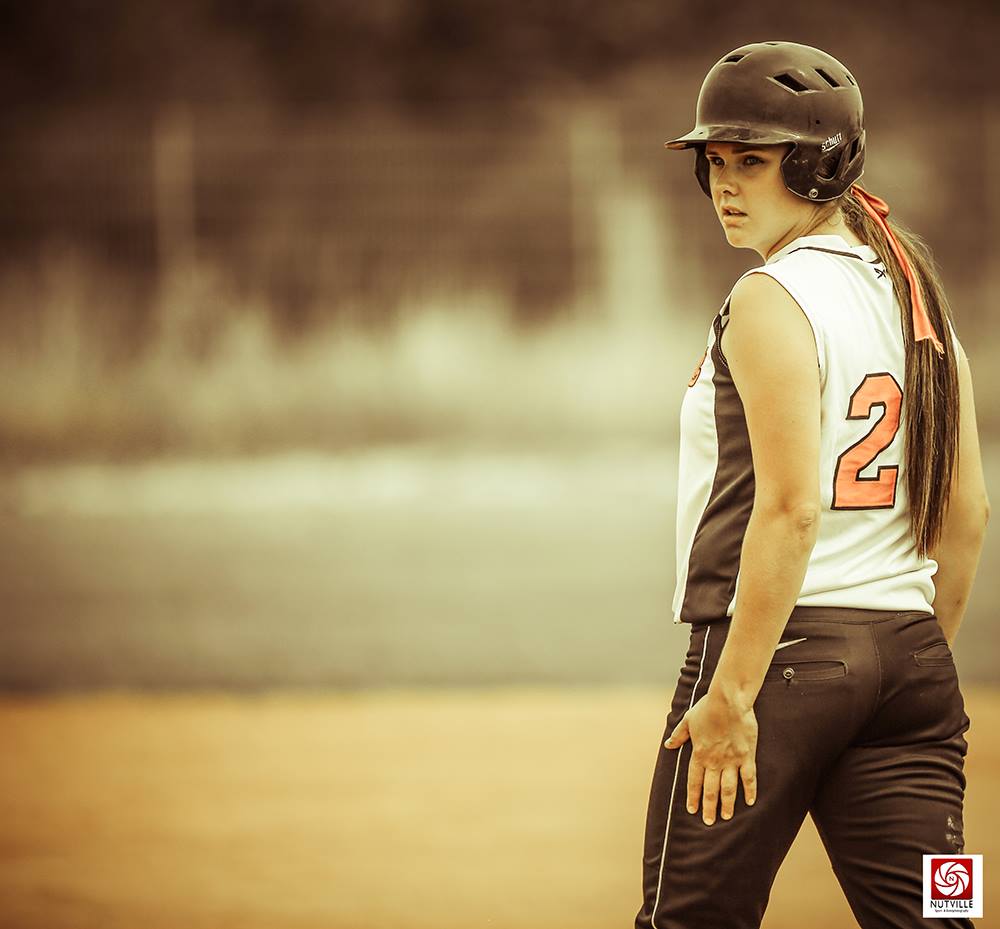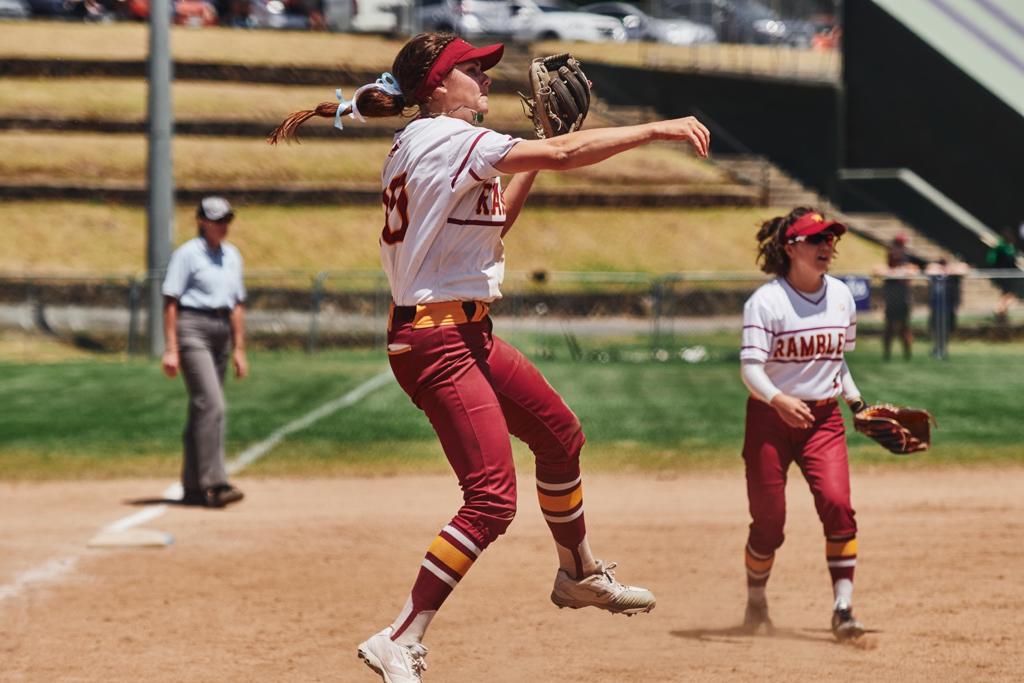March 21st, 2021
By Carter Cromwell
That Lisa Maulden is an American playing softball overseas isn’t particularly unusual, but her path to this point has been.
“My softball journey has been very non-linear,” she acknowledges.
Indeed, her road from growing up near Seattle, WA, to her current posting in Ogaki, Japan has had a lot of curves, twists and sudden turns. Straightaways have been few and far between.
Maulden didn’t start playing softball until she was 12 – “One of the last sports I tried’ – and didn’t make the team on her first attempt. She later performed well on club teams and her high-school squad, but decided she wanted to focus on academics while in college and not play softball. She was set to go to Seattle University on a partial academic scholarship, but walked on for the team at the last minute and made it, eventually becoming a four-year starter and two-time all-conference selection.
And the journey didn’t stop at graduation. Since then, she’s played and coached in Austria, Belgium, Australia, Hungary, New Zealand (three times), The Netherlands, Italy and now Japan.
There is, of course, a back story – or stories – to all this.
Maulden, who currently plays for the Ogaki Minamoto Softball Club in Japan, tried a number of other sports before getting into softball.

Photo: Lisa approaches a pitch during a softball game in Japan in 2020. Photo credit: Ogaki Minamoto Softball
“Basketball was my main sport for a long time, but some friends were trying out for softball, so I figured I should, too,” she said. “We hit off a pitching machine during the tryout for the middle-school team, and I wasn’t used to it, so I didn’t do well. Luckily, another coach there thought I had talent and asked me to be part of his team.
“Actually, I started out as the water girl,” she said with a laugh.
That’s how the “other coach” – Joe Jimenez, who coached the Tahoma Little League team that also played as a club team at other times during the year – first noticed her.
“I kept seeing Lisa sitting on a bucket, carrying all the bags and looking happy to be there,” Jimenez said. “She looked athletic, so I asked my players who she was, and they said she was the manager – that she had done pretty well in the tryouts but hadn’t made it.
“For some reason, though, I thought she could play,” he continued. “One day, I was running practice because the head coach had to be away, and I told Lisa to grab a bat and hit. She said, ‘Coach, I’m just the manager,’ and I said that was OK and asked her which side she hit from. She said both, so I had her bat lefthanded. She fouled off the first pitch and then hit the next one off the fence. I threw more to her, and she hit as well as anyone else.”
Right then and there, Jimenez made up his mind – Maulden was on the team. In his words, she ended up being “one of the best players in the state. She was a quick learner – always strategic in games and thinking several steps ahead.”
Later, she moved to some club teams that traveled a lot, while also playing for her high school team in Maple Valley, WA, that made its first appearance in the state playoffs during her time there.

Photo: Lisa (left) at the Brandenburg Gate in Berlin, Germany with fellow international softball travellers Kingsley Avery and Katie Park. The three girls did a European tour in 2019 spanning one week and 10 countries.
“She wasn’t simply a good athlete. Her competitiveness and mental maturity really stood out,” her high school coach, Tom Milligan, said. “Some players understand your expectations and strategy right away – she was one of those.”
However, despite being a four-year starter, batting over .400 each season and earning all-league recognition – with a good academic record as a bonus – she didn’t have an abundance of collegiate offers.
“By her freshman year in high school, the select team coaches were saying that she had a good chance to play in college,” her mother, Jamesa, said.
However, she quit the travel team prior to her senior season so she could focus more on academics, and that may have limited her visibility to college coaches. As Milligan said, “The club programs had more impact with recruitment. They kind of held the reins.”
One school in the eastern U.S., wanted her to come for an official visit but wasn’t offering a full scholarship, and she didn’t want to go that far from her family and then-boyfriend. But she had applied at Seattle University and been offered a partial academic scholarship, and fate once again stepped in.
“My high school coach was telling me that I should re-consider playing,” Maulden said, “and he recommended me as a walk-on candidate to the coach at Seattle U. I talked with him at a tournament just a couple of weeks before school was to start and was encouraged to try out. I did, and ended up making the team.”
Mom Jamesa added, “She had been planning to live at home and commute to school to keep costs down, but freshman athletes are required to live on campus, so she had to make sure she was eligible to play from the academic standpoint and get campus housing. We had to figure all that out over a weekend.”

Photo: Lisa with Seattle U
And they did. Once on campus, it took a bit of time for her to get organized and take care of both schoolwork and softball, but she ended up managing well in school and starting most of the team’s games at first base.
Toward the end of that first year, though, came a crisis of sorts that could have derailed her career. This one involved money. The on-campus housing cost was becoming untenable, and Maulden thought she might have to transfer to another school.
“I talked with my mom, and she said that if I couldn’t get any additional financial help, I’d need to transfer,” she said. “I talked to my coaches about it – explained that I’d really enjoyed the year – and they told me they were going to give me a partial scholarship. When they started talking money, I could feel a big weight come off my shoulders because I really loved the school. That was the reason I’d chosen it to begin with.”
Her sophomore year was difficult because her relationship ended, there was competition for her position and she had to adjust to playing outfield part of the time, but she ended up starting 45 of the team’s 48 games and putting herself on course to making the all-Western Athletic Conference team the next two seasons.
The next step in her journey took her overseas, a move for which her mom “blames” herself.
“It was my ‘fault’,” Jamesa acknowledged wryly. “She had a former teammate who’d posted something online about going overseas to play, and Lisa asked me how she could do that. I went online, found a message board that said certain teams were looking for players, and she got a job through that.”
“When I first saw the email, I thought it was to play in Australia,” Lisa said with a laugh. “Then my family told me, ‘Uh, Lisa . . . that’s Austria.’ But I was super-excited to have an opportunity.”

Photo: Lisa wih the Wr. Neustadt Crazy Chicklets of the Austrian Softball League
Her father, Dean, remembers his thoughts at her graduation celebration, the day before she was to leave.
“I recall chatting with family members and wondering, ‘Okay, but what’s her career choice?’” he said. “It was at least a year before I realized that Lisa was living her dream – playing and coaching softball internationally.”
She left the day after graduation, and opportunities since then have taken her to various points on the globe and expanded her collection of baggage tags.
“When Lisa played in Europe, I rarely knew her exact location,” her dad said with a chuckle. “The clues were in the photos she sent from places like Hungary, Germany, Italy, France, Malta.”
Maulden is an American playing in Japan with a New Zealand-issued phone number and a Hungarian passport in addition to her U.S. one.
“I was playing and coaching in Budapest, and they were looking for people who were eligible for a passport and could play on the national team,” she said. “The club took care of everything … I’m not sure exactly how it happened, but I’m happy to have the flexibility it gives me.”
Until now, she’s followed the summer, playing in Europe during the Northern Hemisphere summer and moving to New Zealand when the weather north of the equator turned cold.
She went to Japan in 2020 to play there for the first time, and then the Covid-19 pandemic happened.
“I came to Japan in January [2020] to meet my new team,” she said, “and then went back to my New Zealand club. But then Covid caused the rest of the season there to be canceled, so I told the Japanese team I could be there earlier than planned, if they needed me. Shortly after that, my general manager called at around 6pm and asked if I could be on a flight at 9am the next day. I packed my bags and that night and was on the flight.”

Photo: Lisa with Mt. Albert Ramblers Softball Club of Auckland, New Zealand
As expected, Maulden discovered differences in the way the game is approached and played in Asia.
“In Japan, there is a routine and a process to everything, and they’ve revamped softball to make it work for their bodies. They’re more petite – foreigners stand out like sore thumbs – so they use different mechanics, whether hitting or throwing. They pitch to foreigners differently, too – mostly off-speed. Of the first 10 hits I had in the league, I think seven were off change-ups. My coach helped me change my approach to hitting, too. He said I needed to be swinging more – foul balls are OK – whereas before I’d wait until getting what I thought was a good pitch to hit, or my pitch.
“On the other hand, the practices can have some crazy aspects. Hitters had to take 15,000 swings in 23 days, and pitchers had to run 500 poles (foul pole to foul pole) – about 30 a day. They focus on quantity a lot more than is necessary, and there are little to no consequences for failure. In America, you have to run or do push-ups if you miss your bunts in practice. As a team, though we’ve gotten better at emphasizing quality over quantity and creating a competitive environment.”
Still, Maulden adjusted to the environment well, helping her team win the championship of the second division of the Japanese Women’s Softball League and earn a promotion to the first division. She finished second in the league with a .455 batting average and was named to the league’s Top 9 as the designated hitter. She is signed for the upcoming season.
“Lisa has always worked hard to improve individually, while still being a good team player,” her father said, “and that extends to adjusting to the environment. Being in Japan has been a challenge because of Covid-related travel restrictions, language barriers and cultural differences, but she’s always been able to adapt.”
Maulden is actually surprised that she’s in Asia to begin with.
“I never imagined playing here,” she said. “It’s very difficult to get into this market, and I’d never rated myself on this level as a player. But I’ve loved the experience and am blown away that I’m still here.
“I’ll be here until November,” she added. “Typically, I live life about six months in advance, one contract at a time. Past that, I don’t know.”
And that is true in the larger context, as well. What will happen in the next few years and then after her playing career is over is open to question. It’s quite possible that she’ll remain overseas for the foreseeable future.

Photo: Lisa takes a bow during the opening ceremonies in Japan. Photo credit: Ogaki Minamoto Softball
“I always have to ask Lisa where she is or what continent she’s on,” her mother said with a laugh. “It’s a Catch-22 – I miss her a lot, but I’m super happy that she’s able to follow her passion. I think she’ll travel for a long time and will end up finding a place she wants to stay. I’m proud, too, that she’s influencing other young girls in a positive way.”
Milligan added, “She’s definitely following her heart and desires. Through that experience – traveling and being around all different cultures – she’ll be able to expand on it and do something really positive.”
Maulden, who will be 28 in March, could always coach, of course, and has a passion for statistics and baseball that she could apply to the growing area of analytics. But that probably would entail going back to school, something she’s not ready to do.
She also served as director of softball operations for Baseball Jobs Overseas from 2015 until March 2021 and now remains on as a board member, a role she can leverage toward her goal of helping the sport continue to grow and attract more people overseas to play and coach.
“This started as kind of a four- or five-year vacation, but now I’ve been gone too long and seen too much,” she acknowledged. “Some people back home think I’m trying to escape reality, but, for me, being home and living a ‘regular’ lifestyle didn’t work. I guess I have an abnormal lifestyle, but I truly love what I do. I want to continue to play and travel and live to the fullest while I can.
“The future? – I have no idea. These days, I’m just taking life as it comes and am thankful for the journey I’m on.”




 Moonshot is a baseball apparel company based out of Mannheim, Germany, and is owned and operated by a good friend of ours, Juan Martin. What separates Moonshot from the other companies we have used in the past, is the value for your money and the customer service. You will not find prices like this in Europe or someone that responds faster.
Moonshot is a baseball apparel company based out of Mannheim, Germany, and is owned and operated by a good friend of ours, Juan Martin. What separates Moonshot from the other companies we have used in the past, is the value for your money and the customer service. You will not find prices like this in Europe or someone that responds faster. 
 High end, professional wood and composite bats with a wide selection of models using many different types of wood from Japan, North American and Taiwan. Hakusoh Bat is approved with the WBSC and across Europe.
High end, professional wood and composite bats with a wide selection of models using many different types of wood from Japan, North American and Taiwan. Hakusoh Bat is approved with the WBSC and across Europe. 




